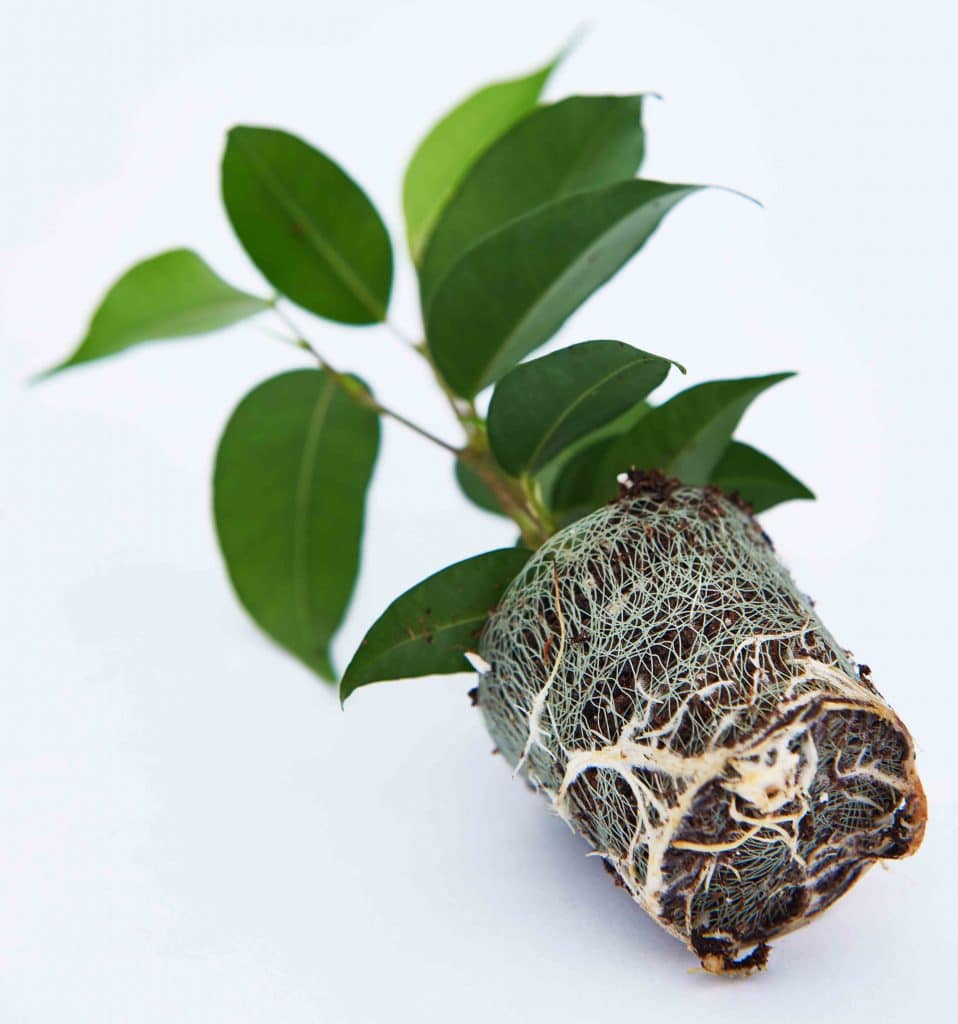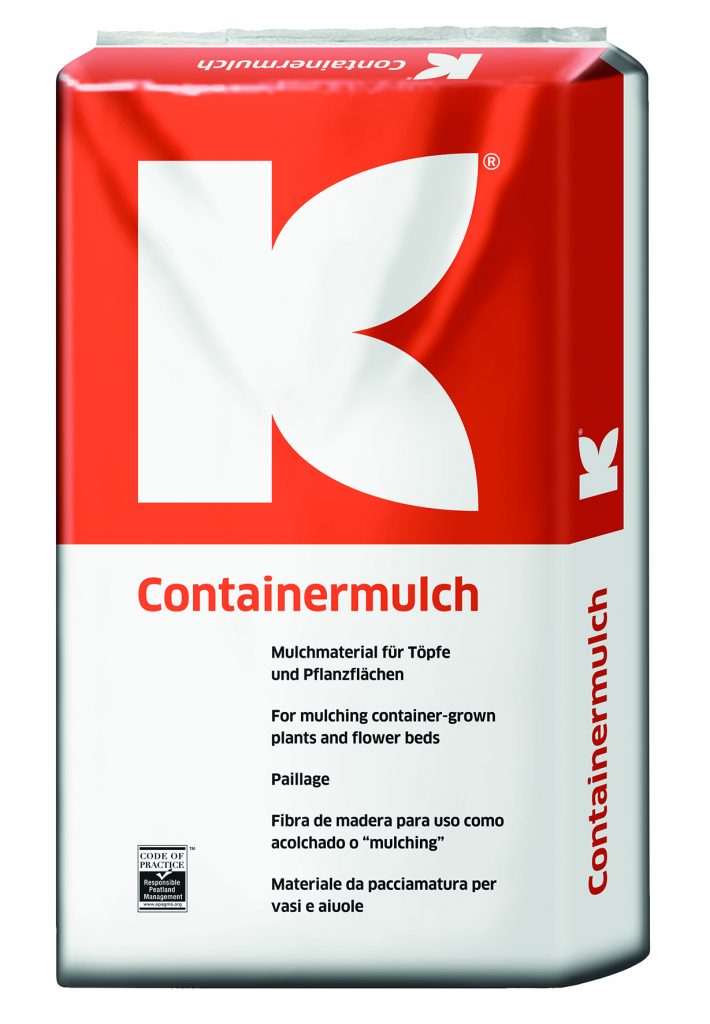Shaping the future with innovation and sustainability
The Growcoon propagation system | A new generation of blocking substrates | Substrates for hydroponic systems | A substrate solution to combat sciarids | Container mulch for small pots | TerrAktiv in container substrates
“International commercial horticulture is currently undergoing multifaceted changes and is repositioning itself for the future,” says Norbert Siebels, Managing Director of the Klasmann-Deilmann Group. “Companies that wish to further advance these developments in a responsible manner need to bring together different perspectives. Profitability, resources and sustainability are among the key criteria. Which is why we are continuing to enhance our products – we want to keep redrawing the boundaries of what’s possible and align them with what’s horticulturally beneficial. And Klasmann-Deilmann is also about embracing fresh ideas – innovation and sustainability shape a better future. That’s what we want to talk about with our customers, business partners and stakeholders at the International Plant Fair (IPM) in 2017.”
Klasmann-Deilmann is selling Growcoon
Klasmann-Deilmann is now marketing an innovative plant propagation system called ‘Growcoon’. In November 2016, the company signed an agreement to this effect with Dutch producer Maan Biobased Products. Through Klasmann-Deilmann, Maan will receive direct access to European and international markets. With Growcoon, Klasmann-Deilmann is now distributing a propagation system whose advantages are directly linked to the use of growing media in horticultural businesses.
Growcoon is a 100% biodegradable mesh with an elastic and open structure. When used in propagation systems, this mesh holds the propagation substrate in place, with this combination forming a stable root plug. In this way, Growcoon reduces the amount of substrate needed per plant by up to 50% compared with other systems, as the growing medium is not compacted. This preserves the substrate’s loose, airy structure, which is key to healthy root development. The result is shorter propagation times and enhanced young-plant performance, associated with lower energy and space requirements.
The Growcoon can be used in all established propagation systems; its size is tailored to precisely fit trays of different sizes. Growcoons are placed in trays manually or automatically using dispensers upstream from the tray-filling machine (the product being suitable for all standard machines).
“Growcoon is an interesting innovation in the propagation of young plants,” says Norbert Siebels. “In terms of the efficiency of production processes in horticultural businesses, the Growcoon offers definite advantages for both producing young plants and growing-on. At the same time, the product’s biodegradability means it meets important sustainability criteria. We are proud to be partners with Maan Biobased Products. Klasmann-Deilmann will play an instrumental role in making Growcoon the success it deserves to be.”
Substrates for the food industry
“The world’s population is growing, but the necessary increase in productive land for the food sector is lagging behind this need. The substrate industry is, together with agriculture and the entire food industry, facing the ongoing challenge of using available resources sustainably and contributing as effectively as possible towards the securing of the food supply,” explains Norbert Siebels. In 2016, 42% of Klasmann-Deilmann’s total production went to the food-producing sector. In particular, propagation and organic substrates have firmly established themselves in the industry. “Through our involvement in fruit and vegetable growing on an international scale, we and our customers are helping to ensure the world has enough food,” Siebels adds.
The new generation of blocking substrates
The successful combination of frozen through black peat and our GreenFibre wood fibre product has laid the foundation for a new generation of blocking substrates. Whereas, previously, the only recipes regarded as being a reliable basis for stable press pots were those based solely on black peat, now additional benefits can be achieved by adding alternative constituents. The addition of up to 20% GreenFibre results in press pots of even greater stability while also reducing substrate weight.
The ‘Potgrond H’ family of substrates has been among the ‘classics’ in Klasmann-Deilmann’s range since the 1970s. The recently developed ‘Potgrond H 50 with GreenFibre’ product not only has a high proportion of wood fibre but also a specially prepared white-peat component with a ‘blocking’ function that combines with the wood fibre in the press pot, thus ensuring optimum stability for automatic planting-out. At the same time, the air capacity has been increased, which ensures enhanced root development. Another addition to the selection is ‘Potgrond H 85 with GreenFibre’, which satisfies the defined requirements for a blend without white peat.
Both blocking substrates can be obtained under the ‘Select’ product line. Also available to Klasmann-Deilmann customers is a respective publication in the ‘GreenNotes’ series which documents the technical aspects of this new generation of blocking substrates.
Substrates for hydroponic systems
When propagating young plants for growing-on in hydroponic systems, peat-based substrates still get the best results. Klasmann-Deilmann’s specialist substrates developed especially for these uses are outstanding in all established propagation systems such as press pots, trays and mesh pots. Substrates that additionally contain the fixing agent ‘Easy Fix’ are primarily intended to meet the special requirements of plug plants. Adding this organic-mineral binder, as in ‘Tray Substrate Easy Fix‘, brings about the stabilisation of the substrate and, in turn, that of the root ball as well. In the ‘Dry Hydroponic System’, the specialist substrate ‘TS Blocking’, based on black peat with added clay, results in excellent outcomes.
For customers of Klasmann-Deilmann who specialise in the propagation of young plants for hydroponic systems, relevant technical information is available in the ‘GreenNotes’ series of publications.
Substrate solution to problem of sciarid infestation
In an EU research project, Klasmann-Deilmann and the University of Osnabrück investigated the causes of sciarid infestation, especially that which affects organic growers. A new substrate solution was developed that reduces development of sciarids by up to 80%.
Primarily in the cultivation of organic potted herbs, sciarids are a major problem in the protection of crops. Horticultural businesses incur high costs for biological control of this pest. The EU research project team found that the main factor was the composition of the substrates used, which contained not only raw peat materials but also 20 to 30% alternative constituents such as compost, coco pith or wood fibre, as well as organic fertiliser. This blend provides the sciarid larva with suitable living conditions. Depending on their composition, organic fertilisers in particular provide a food source for these larvae.
Under this project, the selection of substrate constituents was changed such that the larvae were deprived of their natural food source. What is crucial here is the use of a fully rotted, stable green compost produced by Klasmann-Deilmann in compliance with RHP guidelines. A method of application and a novel fertiliser formulation were also developed that no longer provide an ideal life-sustaining medium for sciarid larvae. With their specially tailored blend of ingredients, these fertilisers achieve remarkably good outcomes not only in the suppression of sciarids but also in terms of plant growth. They are highly efficient in their nutrient potency and also rich in amino acids that strengthen plants. It was in view of this that, last year, Klasmann-Deilmann installed special feeders, enabling the new fertilisers to be injected directly into the substrates.
This new substrate solution is especially promising for growers that use organic herb substrates with low to moderate basic dressing, combining them with commercial (liquid) regimes for subsequent fertilising. Other potential uses are as propagation substrates for sensitive vegetable crops such as lamb’s lettuce.
Container mulch for plants grown in small pots
Only two years after its launch, our container mulch has gained a firm foothold in the market. This innovative wood-based product is especially designed to effectively suppress weeds in both containers and beds. A variation on this product, ‘Fine Container Mulch’, has now been developed specifically for use with plants such as Calluna and herbaceous perennials.
As previously, the results of trials and real-world experience confirm this new mulch has excellent adhesive properties that help form a stable covering layer and prevent soil from being washed or blown away by rain or wind. Fine Container Mulch can be mechanically processed by all spreading machines, is also permeable to water and can be used with all sprinkler systems. Moreover it is forming an attractively coloured stable covering layer on the container surface. Fine Container Mulch is made from sustainably produced, PEFC-certified softwood. It is available both in 70-litre bags and loose.
TerrAktiv has a positive influence in container substrates
‘Microbially vitalising’ a substrate by adding our green-compost product for growing media, TerrAktiv, has an extremely positive impact on the quality of sensitive container-grown plants. This has been confirmed by a project carried out by the French research centre ASTREHOR Loire-Bretagne. Among the outcomes of trials documented between 2013 and 2015 are highly positive effects when adding 10% TerrAktiv by volume: as well as stronger root growth, better plant coloration and robustness, the plants also showed more healthy growth overall than the other tested plants in substrates with organic fertilisers. In total, the proportion of plants in quality categories 1 and 2 increased markedly, especially in years or growing situations with non-ideal conditions (e.g. a shortage of nutrients, and abiotic stress caused by fluctuations in temperature and humidity).The study’s findings corroborated the results of our investigations. In view of this, Klasmann-Deilmann will add our TerrAktiv compost to other substrate recipes for container-grown plants.


